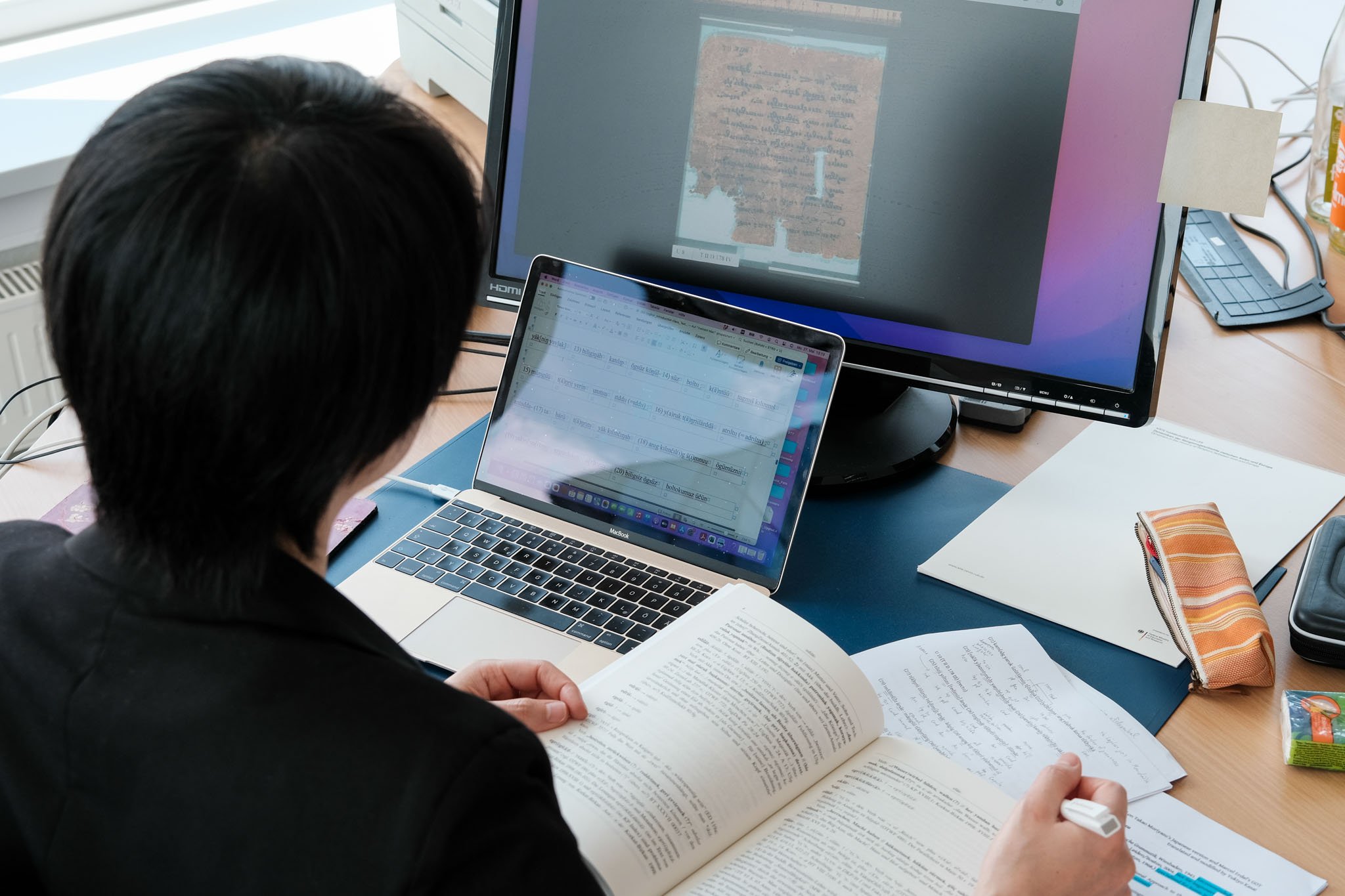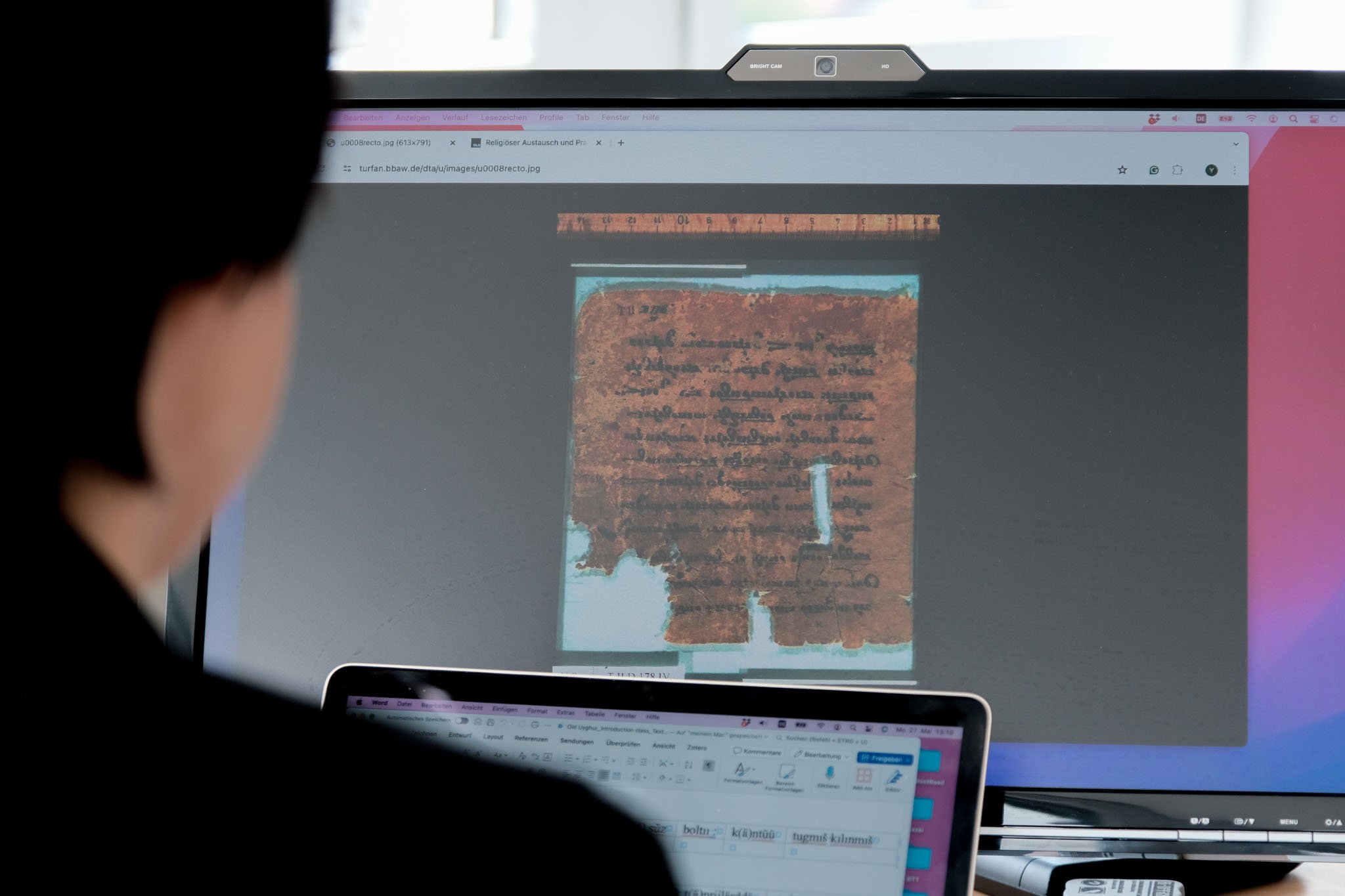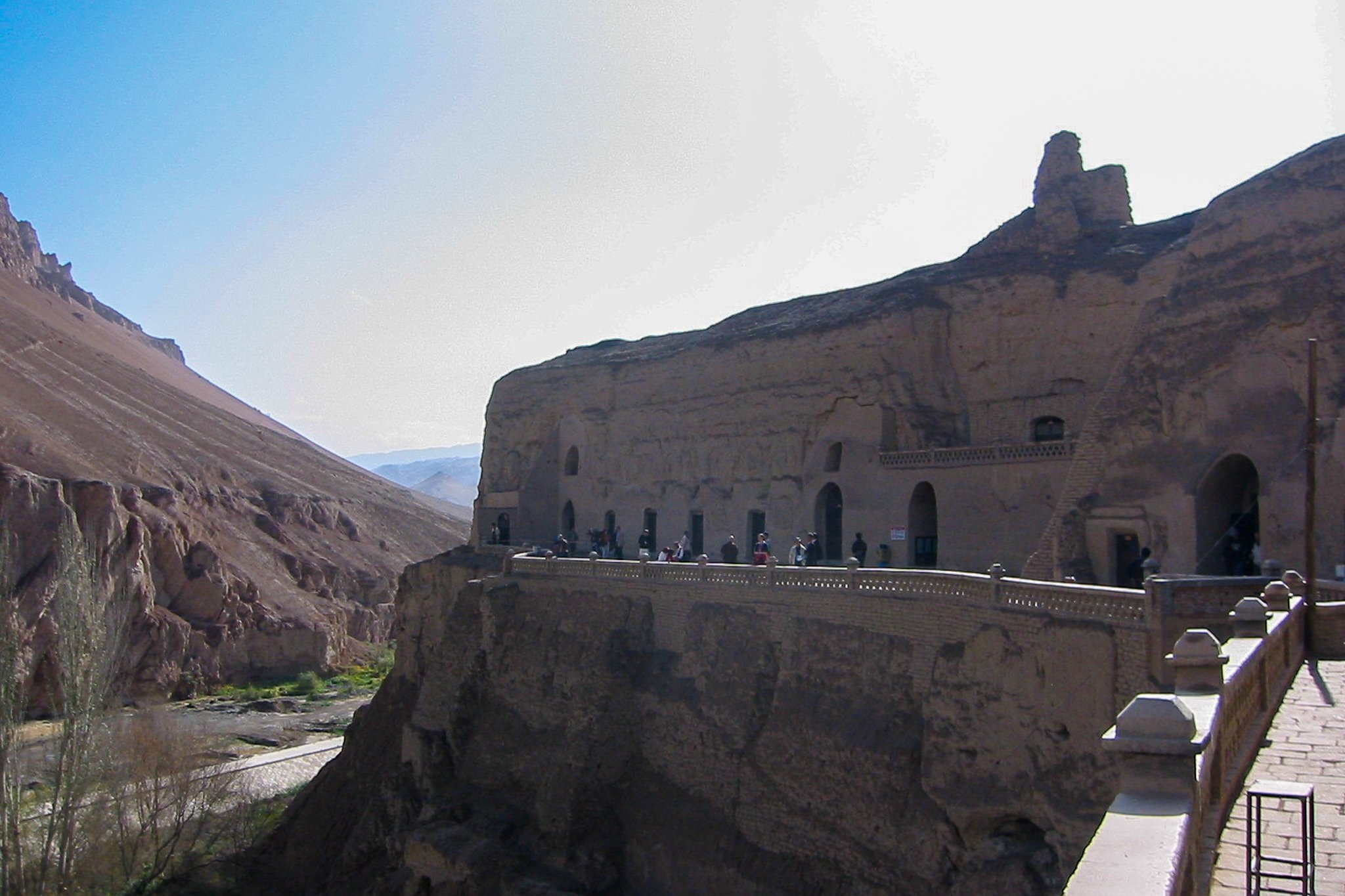
New opportunity for the traditional subject of Old Uyghur studies
PD Dr. Yukiyo Kasai, a long-standing member of the BuddhistRoad project led by Carmen Meinert, has been accepted into the Heisenberg Program of the German Research Foundation (DFG) for her research on the Uyghur religious history of the 9th-14th centuries.
The Uyghurs are a Turkic-speaking ethnic group that today lives mainly in the Uyghur Autonomous Region of Xinjiang (People's Republic of China). While the Uyghurs are predominantly Muslim today, their historical development is characterized by interreligious contacts and cultural exchange. This also includes long phases of Buddhist and Manichaean dominance among the Uyghurs. Research into the religious history of the Uyghurs is difficult, as no evidence of Uyghur historiography has survived. The religious history of the Uyghurs must therefore be reconstructed from mostly fragmentary manuscripts, which lack context, as well as art objects. These materials were left behind by local inhabitants, including the Uyghurs, in Turfan, a center of the former Uyghur Empire in Central Asia.
One of the largest collections of Old Uyghur manuscripts and artifacts is located in Berlin, which is why Germany, especially Turkology as a discipline with philological expertise, has played a leading role in researching the cultural history of the Uyghurs in the past. However, this tradition line has been broken - not only in Germany, but also throughout Europe. Today, there is no longer the opportunity to study Old Uyghur studies at any German university and to engage in research on the Uyghurs in this context. In view of this situation, Yukiyo Kasai has set herself the goal of repositioning the field of research in the context of religious studies. This opens up the prospect of continuing the history of the research discipline in Germany and attracting subsequent generations of scholars to Old Uyghur studies.
The affiliation of the project with CERES is beneficial in many respects. CERES has proven frequently that one of its strengths lies in the integration of smaller disciplines into collaborative research. This offers opportunities for networking and exchange with researchers from other disciplines and research projects, which can provide important impulses. Yukiyo Kasai can fall back on a scientific network through her involvement in the ERC project BuddhistRoad. The reorientation of research into the history of religion of the Uyghurs that Kasai is striving for and the integration into the scientific infrastructure of CERES, as well as the opportunities that arise from the DFG funding within the framework of the Heisenberg Program, offer a unique opportunity to preserve a „small subject“ rich in tradition. We wish Yukiyo Kasai every success with this project and congratulate her on her acceptance into the Heisenberg Program.
More information:







